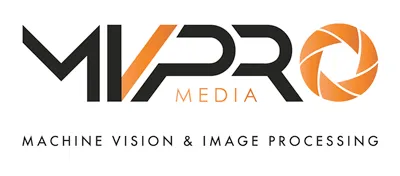The European Strategy Forum on Research Infrastructures (ESFRI) has announced the 11 research projects included in its 2021 roadmap. After two years of evaluation, €4.1 billion will be invested in “excellent science contributing to address European challenges”.
The ESFRI has established a European Roadmap for Research Infrastructures (new and major upgrades, pan-European interest) for the next 10-20 years, stimulates the implementation of these facilities, and updates the roadmap as needed. The 11 research projects scored highly with the ESFRI for their “science case and maturity for implementation” and will be included as new Projects in the ESFRI 2021 Roadmap Update.
The ESFRI Executive Board analysed the outcomes of the evaluation of the 18 proposals submitted for the Roadmap 2021 inclusion, carried out by the relevant Strategy Working Groups and by the Implementation Group, taking account of the strategic value of the projects for bringing in important contributions to fill gaps and to overall reinforce the Roadmap.
The Groups found that there is a renewed momentum for investments in RIs – total investment costs in 11 new Projects will reach EUR 4.164 million (EUR 380 million on average), whilst in the 2018 ESFRI Roadmap it was EUR 674 million (EUR 112 million on average) and in the 2016 Roadmap EUR 856 million (EUR 143 million on average). This is the highest value of new RI investment plans since the first Roadmap in 2006.
The ESFRI says there is also a “new level of ambition” to develop globally unique, complex facilities for frontier science. The Einstein Telescope will become the highest value project ever on the Roadmap (EUR 1.900 million) whilst EuPRAXIA, an innovative accelerator based on plasma technology, follows behind (EUR 569 million).

Jana Kolar, executive director of the Central European Research Infrastructure Consortium (CERIC-ERIC), was recently elected as the next ESFRI Chair. Image: ESFRI.
The new ESFRI Projects are:
- EBRAINS – European Brain Research Infrastructures, a distributed digital infrastructure at the interface of neuroscience, computing and technology, offering scientists and developers advanced tools and services for brain research.
- EIRENE RI – Research Infrastructure for EnvIronmental Exposure assessment in Europe, the first EU infrastructure on human exposome (environmental determinants of health).
- ET – Einstein Telescope, the first and most advanced third-generation gravitational-wave observatory, with unprecedented sensitivity that will put Europe at the forefront of the Gravitation Waves research.
- EuPRAXIA – European Plasma Research Accelerator with Excellence in Applications, a distributed, compact and innovative accelerator facility based on plasma technology, set to construct an electron-beam-driven plasma accelerator in the metropolitan area of Rome, followed by a laser-driven plasma accelerator in European territory.
- GGP – The Generations and Gender Programme, aiming to provide high quality and cross-nationally comparable longitudinal data to answer pressing scientific and societal challenges on population and family dynamics.
- GUIDE – Growing Up in Digital Europe-EuroCohort, Europe’s first comparative birth cohort survey, aiming to support the development of social policies for the enhancement of the wellbeing of children, young people and their families across Europe.
- MARINERG-i – Offshore Renewable Energy Research Infrastructure, setting out to become the leading internationally Distributed Research Infrastructure in the Offshore Renewable Energy (ORE) sector, with a network of test facilities spread across Europe.
- OPERAS – Open Access in the European Research Area through Scholarly Communication, the distributed RI to enable Open Science and upgrade scholarly communication practices in the Social Sciences and Humanities (SSH) in line with the European Open Science Cloud.
- RESILIENCE – Religious Studies Infrastructure: Tools, Innovation, Experts, Connections and Centers, a unique, interdisciplinary scientific RI for all Religious Studies, building a high-performance platform, supplying tools and access to physical and digital data to scholars from all scientific disciplines.
- SLICES – Scientific Large-scale Infrastructure for Computing/Communication Experimental Studies ambitions to become an impactful RI in Digital Sciences, including concerns regarding energy consumption and the implementation of the Green Deal.
- SoBigData++ RI – European Integrated Infrastructure for Social Mining and Big Data Analytics, a resource for sharing datasets, methods, research skills and computational resources for supporting the comprehension of social phenomena through the lens of Big Data.
It is hoped the selected RIs will provide support to key EU priorities, including “social pillar” for economic and social policies, “digital transition”, “green deal” and “health”.
The ESFRI Roadmap 2021 – which includes the Strategy Report and the Landscape Analysis – will be approved by the Forum in September and will be published during the launch event in December 2021.
You can find more information about the ESFRI and the 11 research projects on its website.
Stay up to date with the most recent automation, machine vision, and robotics news on MVPro. Read the best stories every Friday with our newsletter.





